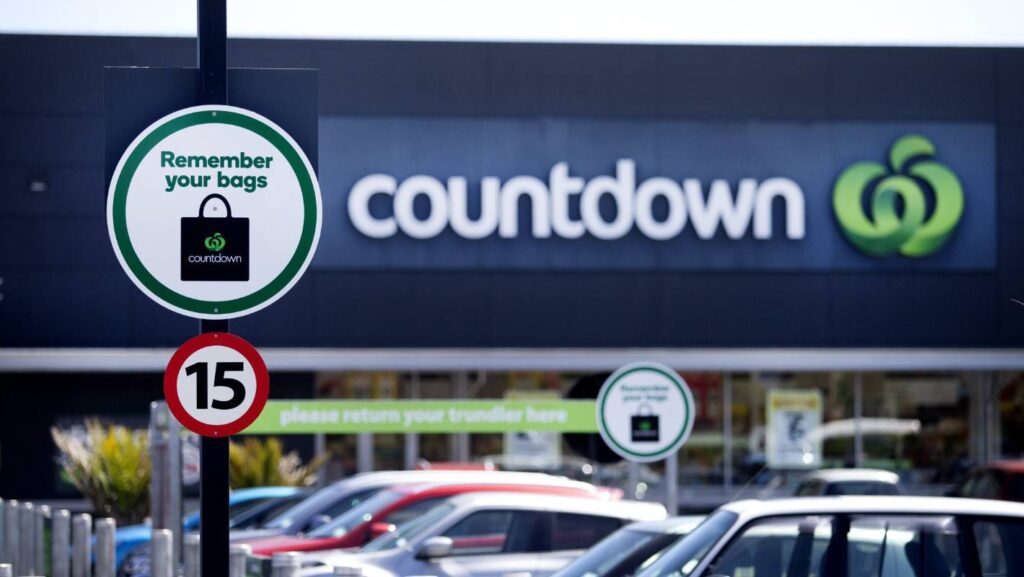Shoppers would be “daft” not to have a loyalty card for the supermarket at which they shop most often, one marketing expert says – but they are not all created equal.
The two significant loyalty programmes in New Zealand supermarkets are New World’s Clubcard and Countdown’s OneCard.
New World offers shoppers the chance to collect Airpoints Dollars or Fly Buys points, which can be used to purchase travel or merchandise, or converted to New World Dollars at set times of the year.
Countdown’s OneCard allows customers to choose between collecting Smartfuel points for petrol discounts, or OneCard points for Countdown vouchers. There is also a 6c per litre discount on fuel at BP or GAS.
Ben Goodale, chief executive at advertising agency Quantum Jump, said the cards were good value for customers.
“A lot of the time it’s the way to access the best savings. A lot of the ticketed items in New World ad Countdown are member-only. As a shopper you would be daft not to have the card.”
The supermarkets did not reveal what percentage of discounts rely on the shopper having a card. Foodstuffs said it was a “large volume”. Countdown said that information was commercially sensitive.
Goodale said they helped supermarkets to appeal to customers as part of their overall value proposition.
The amounts customers have to spend to get rewards are high – so it makes sense to get a card for the shop you frequent, rather than seeking out a particular store for its discounts.
Consumer NZ estimates that someone would have to spend $15,250 at New World to have enough points for a $100 travel voucher through Fly Buys and $13,514 for the same value with Airpoints.
If you spent $2000 at Countdown you would have enough points for a $15 voucher – but you would need to do that spending within six months as points expire six months after they are earnt.
At New World you’d need to spend $2125 to have enough points to convert to 15 New World Dollars.
Fly Buys last three years and Fly Buys converted to New World dollars expire after 24 months.
Jessica Wilson, of Consumer NZ, said there were concerns about the data that shoppers handed over when they signed up to a card.
“Your personal data is the big reward for these schemes. They get a wealth of consumer data.”
She said it was not always clear to shoppers what the information about them was being used for or who else might have access to it.
But Goodale said while the data was useful, supermarkets were still only beginning to work with it.
“If you talk to any supermarket they would say it’s early days in terms of getting the best value from the data. They are all getting a bit better but it’s by no means the Orwellian nightmare some people like to conjure up about Big Brother watching what you’re buying.”
He said the data was not used at an individual level yet but helped shops to understand what sort of shopper was buying what sort of food.
Over time the offers sent to shoppers should become more relevant based on their shopping history, he said. “You should be told about stuff you like buying being on special. That’s another benefit of being a member.”
Antoinette Laird, head of corporate affairs for Foodstuffs, said the loyalty programme offered benefits that were not available to other shoppers.
“We’re always looking at ways to deliver a personalised and memorable experience our customers. We do this by providing special offers, tailored content and an enhanced customer experience that is personalised to each customer’s needs. Providing tangible benefits outside of these standard discounts, rewards customers for sticking with us and deepens our relationship with them,” she said.
“New World Clubcard’s seasonal promotions reward customers for simply shopping with us. From our ‘Get Summer Ready’ promotion which rewarded customers with summer prize packs or free trials for Kate Ivey Fitness’ DediKate programme, to our Rugby World Cup promotion with Mastercard that gave one lucky winner a trip to Japan, a simple swipe of your Clubcard can fetch you so much more than groceries.”
Wilson said Consumer’s surveys consistently showed that it was Pak’n Save, which only has a loyalty club in the South Island, which offered the cheapest groceries.
“Rather than a loyalty scheme look at their prices. That’s the best indication of what your shopping bill will be – what you’ll actually pay rather than the promise of a discount in future.”
By Susan Edmunds.


